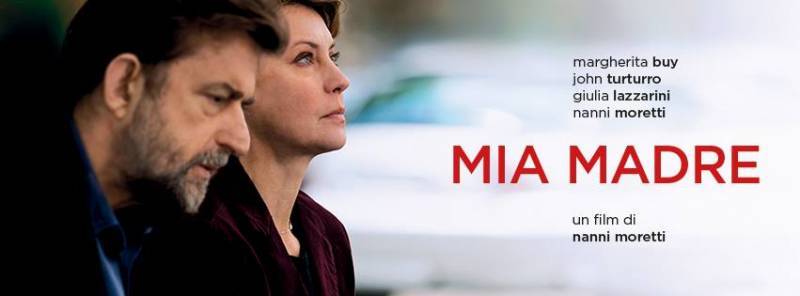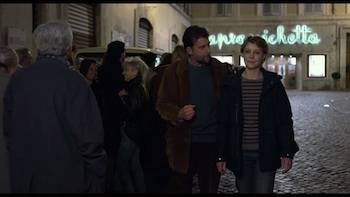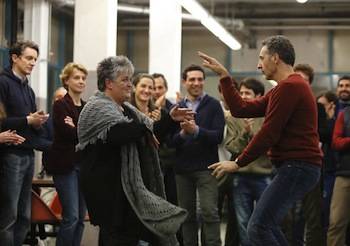Mia Madre: a Tale of Unconditional Love, Movie Sets and Loss
“From Cannes, I would accept anything.” With these words, Italian filmmaker Nanni Moretti had, a couple of months ago, anticipated his participation at this year's Cannes Film Festival with his latest effort, “Mia Madre.”
The relationship between Moretti and Cannes is a fortunate one: the director has already won the Palme d’Or for “The Son’s Room” (2001) and has had five previous films in competition at Cannes: “Ecce bombo” (1978); “Dear Diary” (1994), which won him a directing prize; “Aprile” (1998); “The Caiman” (2006); “We Have a Pope” (2011). In addition, Moretti has also presided the Cannes jury in 2012.
At the premiere of his film, which has opened in Italy back in April and has been pretty successful, Moretti seemed touched by a 10 minute long applause and the emotional reaction of the audience.
“When you come to Cannes you realize how cinema is being treated abroad: by journalists, critics, producers, politicians alike,” Moretti told the Italian press agency ANSA, “There is great care, great joy but also great professionalism. In Italy instead there is so much sadness and so much sloppiness. I return to Italy happy for seeing that all this is possible but also sad because I know how things are in my country.”
“'This international audience, watches my film and that's that, they judge it for what it is,” he continued to say, “Nothing else is taken into consideration, which is different from what happens back in Italy where people don't judge only my film but also my public persona, my political views, the interviews I give, my level of likeability, my attitude towards the press and much more. In Italy more factors influence the reception of my films, here a film is a film.”
Starring Moretti himself along with Margherita Buy and John Turturro, “Mia Madre” tells the story of a film director having to deal with a dying mother and other crises. That of the mortality of a parent who represents unconditional love is a theme that has a universal appeal - a troubling topic that all of us will face. Moretti's telling is sweet and sentimental and pretty biographic. This is a film that faces reality head-on.
The main character is Margherita, played by Margherita Buy, a film director who is stressing out on the set of her new movie (which is very reminiscent of Moretti). Her brother, Giovanni, payed by Moretti, represents much-needed stability and is the one who brings home-cooked meals and good humor. The two have to deal with the impending loss of their mother, s a former teacher, like Moretti’s own mother. Margherita tries her best to cope with everything but the real headache comes when American actor Barry Huggins, played by John Turturro, arrives on set to play the role of a factory boss. Turturro's presence gives that touch of humor that is necessary to provide a break from more somber moments.
“There is a lot of me in Margherita,” Moretti has declared, “When I was writing the script I had Margherita Buy in mind. Giovanni is the Nanni I would like to be. Margherita has a certain uneasiness, as well as nervousness and inadequacy. She's not a caregiver, she's not able at keeping it all together but she's always having a tough time and she is always somewhere else with her mind, thinking about something else. Yes this is a film about death but it is also about what is left behind to those who are still living.”




































i-Italy
Facebook
Google+
This work may not be reproduced, in whole or in part, without prior written permission.
Questo lavoro non può essere riprodotto, in tutto o in parte, senza permesso scritto.